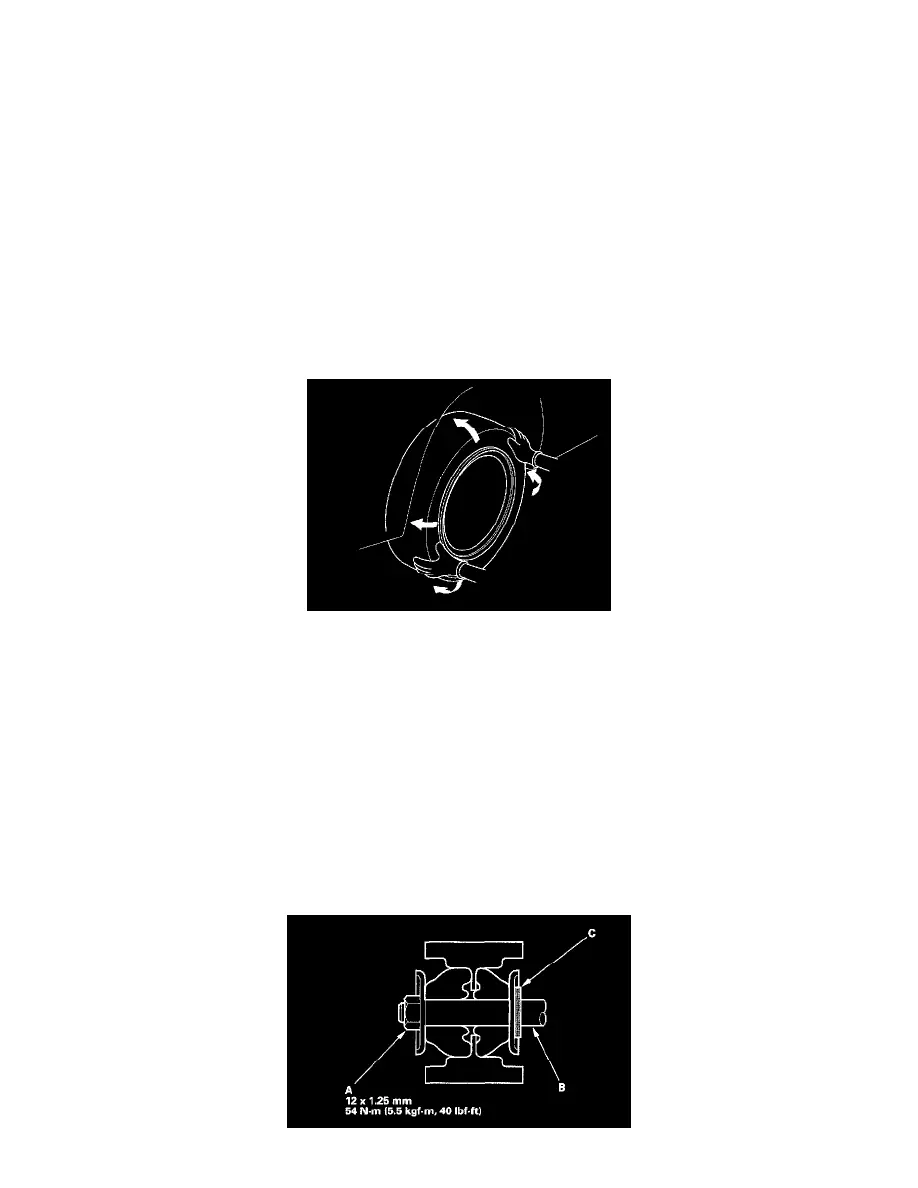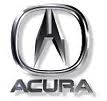CL V6-3.2L SOHC (2002)

Alignment: Service and Repair
Wheel Alignment
The suspension can be adjusted for front caster, front toe, and rear toe.
Pre-Alignment Checks
For proper inspection and adjustment of the wheel alignment do these checks:
1. Release the parking brake to avoid an incorrect measurement.
2. Make sure the suspension is not modified.
3. Check the tire size and tire pressure.
Tire size:
Front/rear:
Type S: P215/50 R17 93V
Except Type S: P205/60 R16 91V
Tire pressure:
Type S:
Front/rear: 220 kPa (2.2 kgf/cm2, 32 psi)
Except Type S:
Front/rear: 220 kPa (2.2 kgf/cm2, 32 psi)
4. Check the runout of the wheels and tires.
5. Check the suspension ball joints. (Hold a wheel with your hands, and move it up and down and right and left to check for wobbling.)
6. Bounce the suspension up and down several times to stabilize the suspension.
Caster Inspection
Use commercially available computerized four wheel alignment equipment to measure wheel alignment (caster, camber, toe, and/or turning angle).
Follow the equipment manufacturer's instructions.
1. Check the caster angle.
Caster angle: 2°48' ± 1°
2. If out of specification, record the caster reading, then adjust the caster.
Caster Adjustment
Caster angle can be adjusted by increasing/decreasing the number of the adjusting shims. Remove and install the radius rod each time the caster angle
is adjusted.
1. Raise the front of the vehicle, and make sure it is securely supported.
